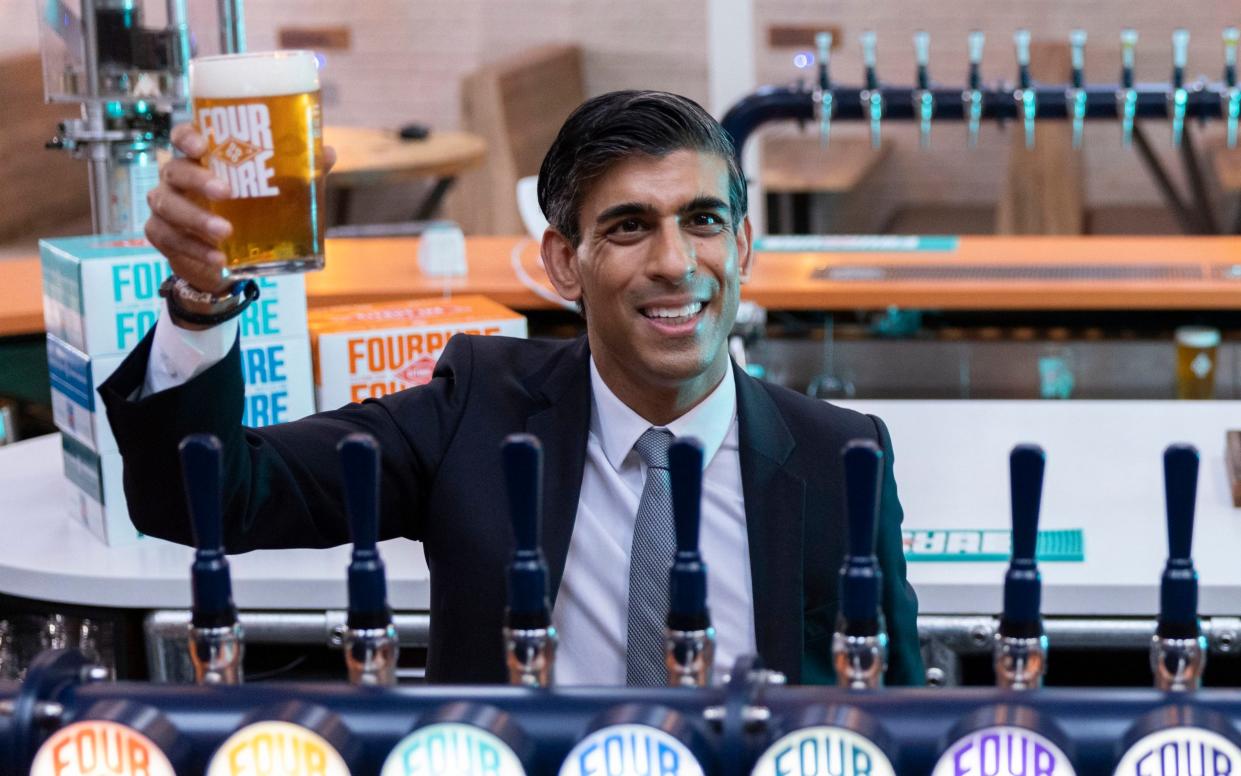Rishi Sunak: The man who could do anything - so why be an MP?

The question many MPs have often asked about Rishi Sunak, if not to his face, is what exactly is he doing in Parliament?
That isn’t a criticism, but rather an acknowledgement of the fact that this globe-trotting, MBA-graduate husband of a billionaire’s daughter could have any life he wants.
For a while he did. Mr Sunak spent 14 years as a banker and then a hedge fund manager, working for that most globalist of entities, Goldman Sachs, while squeezing in his MBA at Stanford, California in 2006.
The son of a GP and a pharmacist who attended the elite Winchester College, Mr Sunak was one of myriad future MPs to study PPE at Oxford, but he showed little interest in politics while there, despite a brief work experience stint at Conservative Campaign Headquarters.
Instead, it was reportedly a friendship with Spectator journalist and fellow Wykehamist James Forsyth that finally gave Mr Sunak the politics bug. Through him, Mr Sunak met numerous party grandees and high-fliers and was eventually persuaded to stand in the 2015 election in William Hague’s old seat of Richmond.
Swift ascent
Once in the doors, however, Mr Sunak’s ascent within the party was swift, remarkably so even for a man of his apparent talents.
The speed of that rise is most obvious in his entry to No 11 Downing Street. Mr Sunak had been appointed chief secretary to the Treasury under his friend and ally Sajid Javid.
Yet within eight months, Mr Javid resigned over the independence of his team of advisers, and it was Mr Sunak, despite never having been a secretary of state, who was made the youngest ever Chancellor of the Exchequer in his stead.
Critics sneered that Mr Sunak would be a “chino” or “chancellor in name only”, opening up the spending taps on demand to feed Boris Johnson’s infrastructure frenzy.
The reality turned out to be quite different, with the PM and Chancellor regularly clashing over fiscal policy and with Mr Sunak forcing Mr Johnson grudgingly into tax rises to pay for his largesse.
Considering his youth and inexperience, it wouldn’t have been a surprise if Mr Sunak had been entirely overwhelmed when just months into the job the pandemic exploded.
Record-breaking spending schemes
Again and again, Mr Sunak had to return to the despatch box to announce record-breaking new schemes costing tens of billions of pounds to keep the economy afloat during repeated lockdowns.
Critics are quick to point out that it was civil servants who came up with the furlough plan and Mr Sunak who liked to place his signature at the bottom of public pronouncements.
That may have been the case, though half the skill in being a good chancellor is knowing which Treasury ideas to push and which to file away never to be reopened.
More damaging were accusations that Mr Sunak’s Eat Out to Help Out meal subsidy scheme, which came months before Britain’s vaccine programme began, helped accelerate the pandemic.
Indeed, Mr Sunak was one of the most lockdown sceptical of Cabinet members, reportedly arranging briefings for Mr Johnson from anti-lockdown scientists to try and counteract the official scientific advice the PM was getting.
Spending money is easy
Either way, the public, as might be expected when being saved from surefire financial oblivion and given a discounted lunch, rapidly embraced the young Chancellor and his popularity ratings soared. He seemed, for a while, the very obvious successor to Mr Johnson.
Yet spending money is easy and once life returned to normal and thoughts turned to how to pay for the damage wrought by the pandemic, Mr Sunak’s popularity took a hit.
His insistence on increasing National Insurance Contributions to pay for clearing the NHS backlog and eventually social care reform broke a manifesto pledge. A partial U-turn weeks later could not undo the damage.
His working relationship with Mr Johnson, who still wanted to follow through on the 2019 manifesto and its very expensive pledges, deteriorated rapidly.
Green card revelation
Mr Sunak made blunders, too, although his allies see the dark hand of Johnson-backers behind them.
The revelation that he held a green card until 2021 was damaging, although worse was to come when it was revealed that his wife, Akshata Murthy, benefited from non-dom tax status even while he was chancellor.
Even Labour would have struggled to imagine a better attack line.
Still, Mr Johnson was weak in his final months in power and even if he joked about sacking his Chancellor, doing so was out of the question.
Mr Sunak could’ve hung in, perhaps rebuilding his reputation by steering the country through the energy crisis. Instead came the Pincher scandal and Mr Sunak, alongside his friend Mr Javid, resigned from government and triggered Mr Johnson’s demise.
That gave him the unenviable title of the man who wielded the knife and many MPs and party members appear not to have forgiven him.
Despite all that, his reputation for quiet competence remained undimmed and throughout the MPs' ballots for leader Mr Sunak was always the clear favourite.
For all his youth and newness, Mr Sunak’s was a very traditional Tory message: sound money and basic competence.
Sadly for Britain’s youngest chancellor, the members didn’t want tradition, they wanted change. Now he may well be asking the same question his colleagues do: what is Rishi Sunak doing as an MP?

 Yahoo News
Yahoo News 
